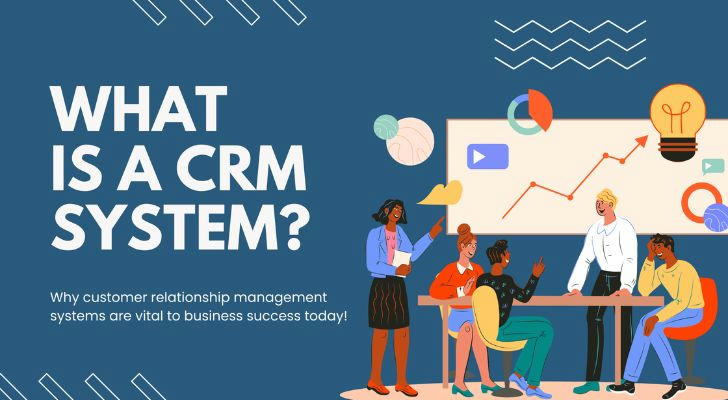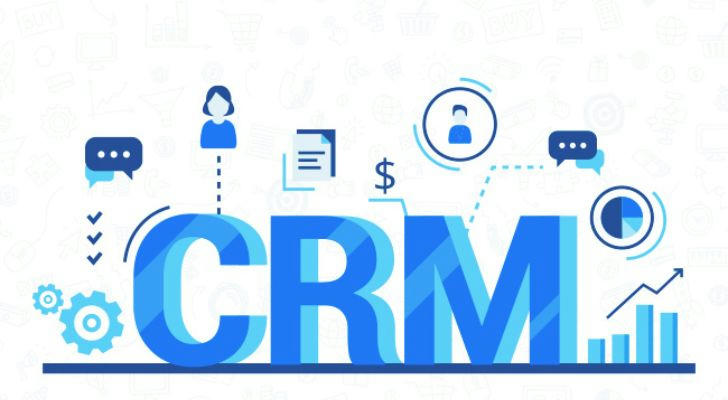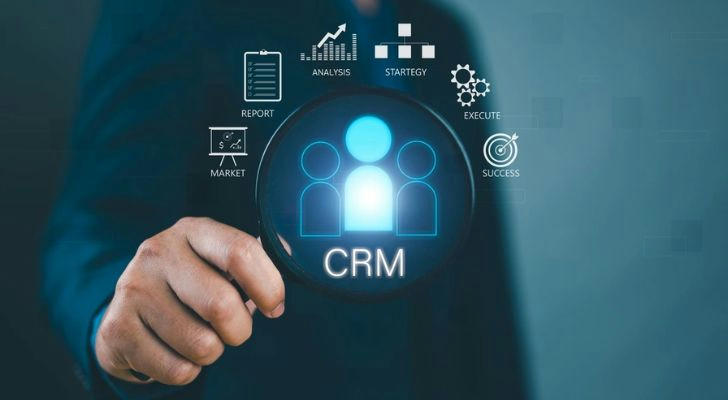📘 What Is a CRM System and Why Is It Important in Business?
In today’s competitive business environment, managing customer relationships effectively is more important than ever. A Customer Relationship Management (CRM) system provides a centralized platform that helps businesses store customer data, track interactions, and coordinate communication across departments. This article explains what a CRM system is, its core features, and why it plays a critical role in business operations.

🔍 Understanding CRM Systems
A CRM system is a type of software used by businesses to organize, automate, and analyze customer interactions. It helps centralize customer data—such as names, email addresses, previous purchases, and service history—into one accessible location. This allows different teams (sales, marketing, and customer service) to have a clear view of each customer’s journey and history with the company.
🧩 Core Components of CRM Systems
- Contact Management: Stores detailed customer profiles, including contact information, communication history, and engagement records.
- Sales Management: Tracks the sales process from lead generation to final purchase. Offers dashboards for monitoring performance and forecasting revenue.
- Marketing Automation: Segments audiences, automates email campaigns, and tracks engagement to improve coordination between marketing and sales teams.
- Customer Support Features: Manages service tickets, assigns cases, and maintains a knowledge base to resolve issues efficiently.
📈 Key Benefits of Using a CRM System
- Better Customer Relationships: Personalized service based on accurate customer data leads to stronger connections.
- Improved Efficiency: Automation of repetitive tasks allows staff to focus on high-value activities.
- Stronger Data Analysis: Built-in analytics provide insights into customer behavior and business performance.
- Higher Customer Retention: Timely and consistent service improves the likelihood of repeat business.
- Scalability: CRM systems adapt as businesses grow, supporting more users, data, and workflows.

📊 Trends in CRM Usage
- Cloud-Based CRM: Offers remote access, real-time updates, and secure storage. Ideal for hybrid or remote teams.
- Mobile Access: Enables staff to access and update customer records on the go.
- Tool Integration: CRM systems integrate with email, social media, and accounting tools to streamline operations.
According to a 2023 report by Grand View Research, the global CRM market size was valued at over $58 billion and is projected to grow at a CAGR of 13.9% from 2024 to 2030.
🛠️ Choosing the Right CRM System
- Business Goals: Select based on whether the priority is sales, support, or marketing.
- Ease of Use: A user-friendly design increases staff adoption and minimizes training time.
- Customization Options: Look for systems that allow adjustments to workflows and fields.
- Integration Capabilities: Ensure compatibility with existing tools and platforms.
- Scalability: Choose a CRM that can support future growth in users and data.

🧠 Why CRM Systems Matter Across Industries
CRM systems are used in a wide range of sectors:
- Healthcare: To manage patient records and outreach.
- Education: To monitor student engagement and communication.
- Retail: For personalized promotions and loyalty tracking.
- Nonprofits: To manage donor data and campaign results.
The shared goal is to improve relationship management through centralized, accurate data.
📌 Final Thoughts
A CRM system is more than just a tool for storing customer contact details. It serves as a strategic solution for enhancing service quality, increasing operational efficiency, and making data-driven decisions.
By placing the customer at the center of operations, businesses can build stronger relationships, improve retention, and foster long-term success.
